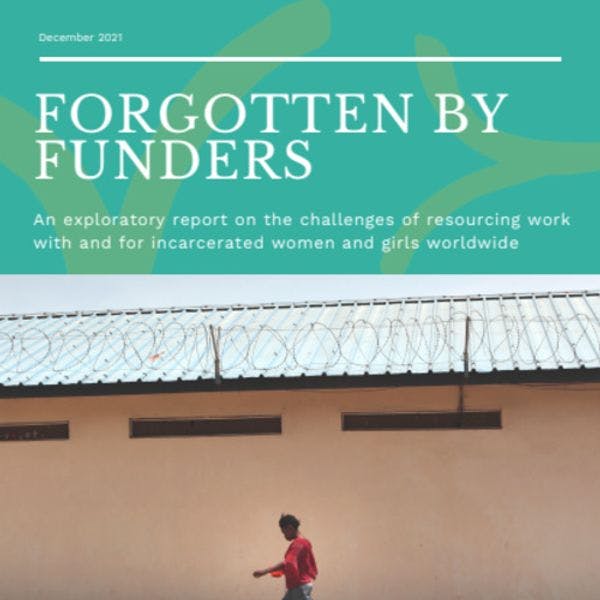Forgotten by funders - An exploratory report on the challenges of resourcing work with and for incarcerated women and girls worldwide
Over 1 million women are controlled by the criminal justice system and over 741,000 women are in prison worldwide. There are at least 800 women on death row. The global female prison population is estimated to have increased by about 59% from 2000 to 2020. Over the past decade, the number of women in prison has grown at a faster rate than that of men. Poverty, abuse, discriminatory laws and punitive drug policies are the key drivers behind the alarming increase in women’s incarceration. Thirty-five percent of women imprisoned worldwide are imprisoned for drug offences, compared to just 19% of men.
Incarceration has a devastating impact on women and their families. The rate of selfharm in women’s prisons is higher than in male prisons. The majority of women in prison are mothers. There are at least 19,000 children living in prison with a parent, most often with their mothers.
Despite these stark statistics, as this exploratory report highlights, work with and for incarcerated/formerly incarcerated women and girls is flourishing but desperately underfunded.
Organisations working with and for incarcerated women and girls are already operating in a difficult funding context. In 2018, a study by the Overseas Development Institute (ODI) found that development aid funding for justice had decreased by 40% over the past 4 years.
Research by the Association for Women’s Rights in Development (AWID) found that 99% of development aid and foundation grants still do not directly reach women’s rights and feminist organisations. In particular, those groups working on intersecting forms of marginalisation (LGBTIQ, indigenous, migrant and refugees, young feminists, and sex workers) are funded even less. Only 0.42% of foundation grants are allocated towards women's rights.
Beyond this foundational funding challenge, the issue of women’s incarceration is also deprioritised. Work with and for incarcerated women and girls is far too often left out of mainstream women’s rights and human rights dialogues, convenings and movements. A prime example was the recent Generation Equality Forum, billed as the biggest convening on women’s rights in the last 25 years. Women’s incarceration did not feature in any of the six action coalitions - key thematic action areas chosen for the global community to focus on for the next five years - in spite of the relevance of the action coalitions on ending gender-based violence, economic justice and rights and feminist movements and leadership.
Notwithstanding this lack of prioritisation and resourcing, vibrant, innovative, impactful and critical work is being done, in particular by women with lived experience of the justice system as well as lawyers, researchers and activists. In August 2021, Women Beyond Walls reached out to 34 organisations working with and for incarcerated women and girls to better understand the funding challenges they face, both in terms of quantity and quality of funding. These organisations span 24 countries across five continents.
Our research found that resourcing for work with and for incarcerated women and girls has failed to adequately address the needs and capacities of these groups, including resourcing by feminist and women’s rights funders. The findings below present a compelling case for why work with and for women and girls impacted by the criminal justice system urgently needs increased resources and more effective funding.
